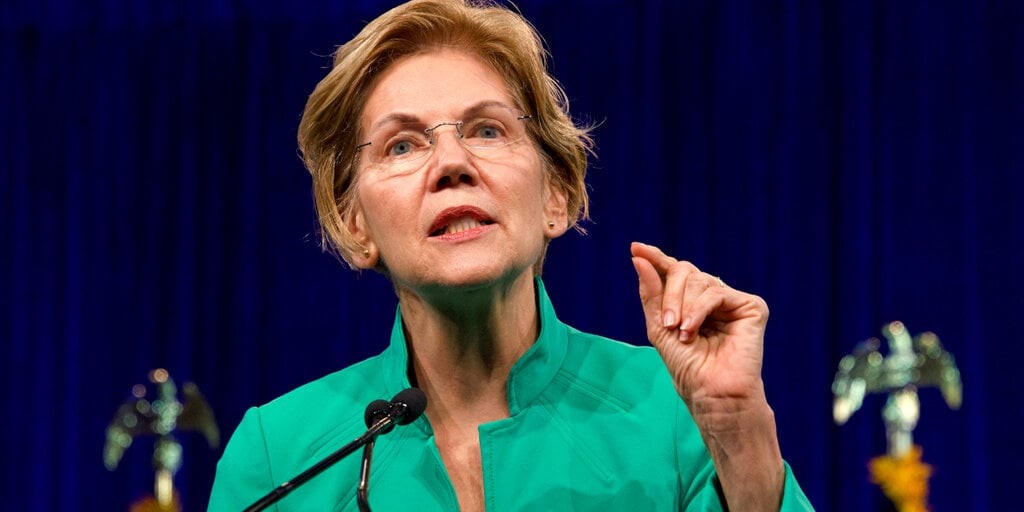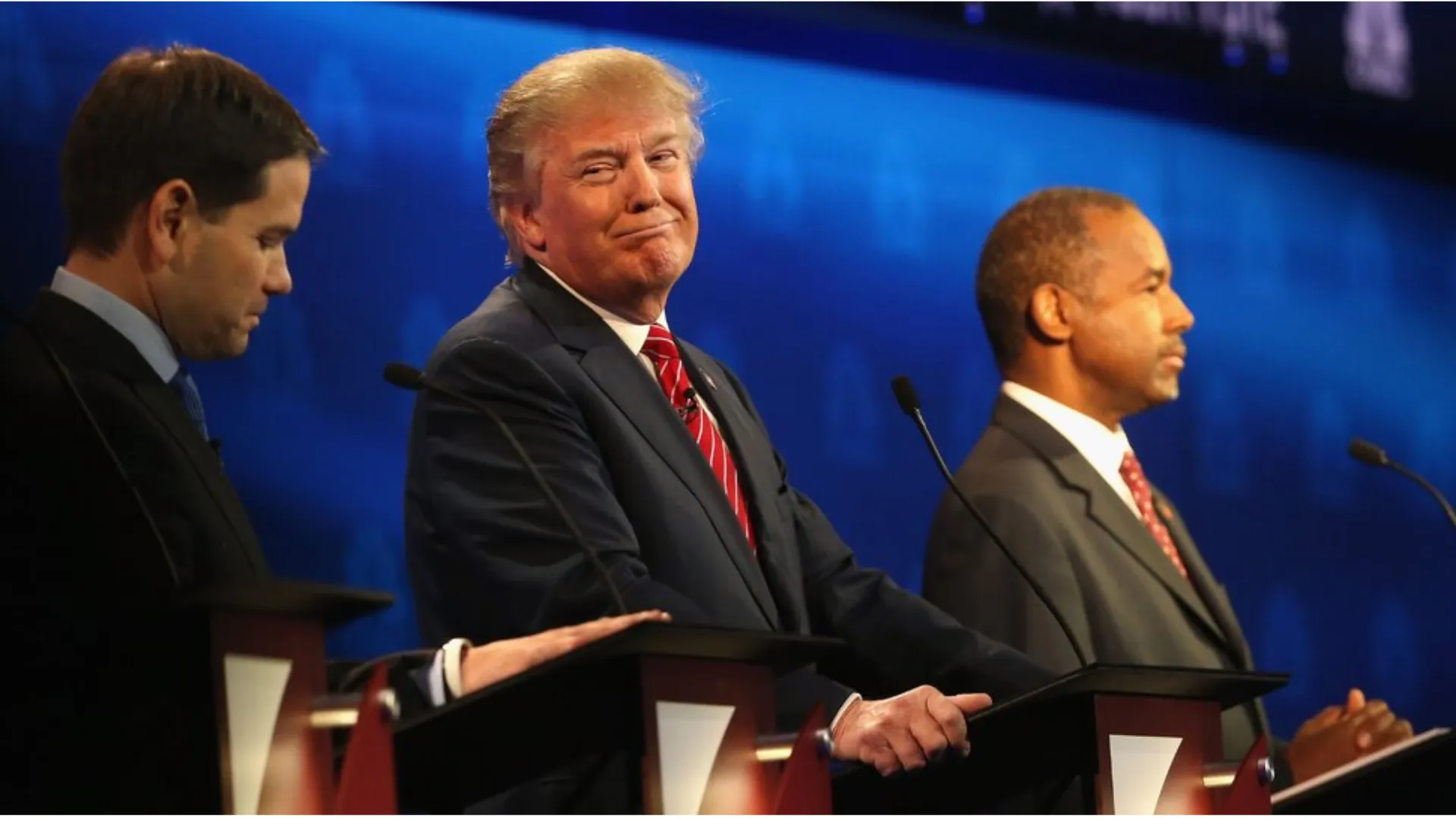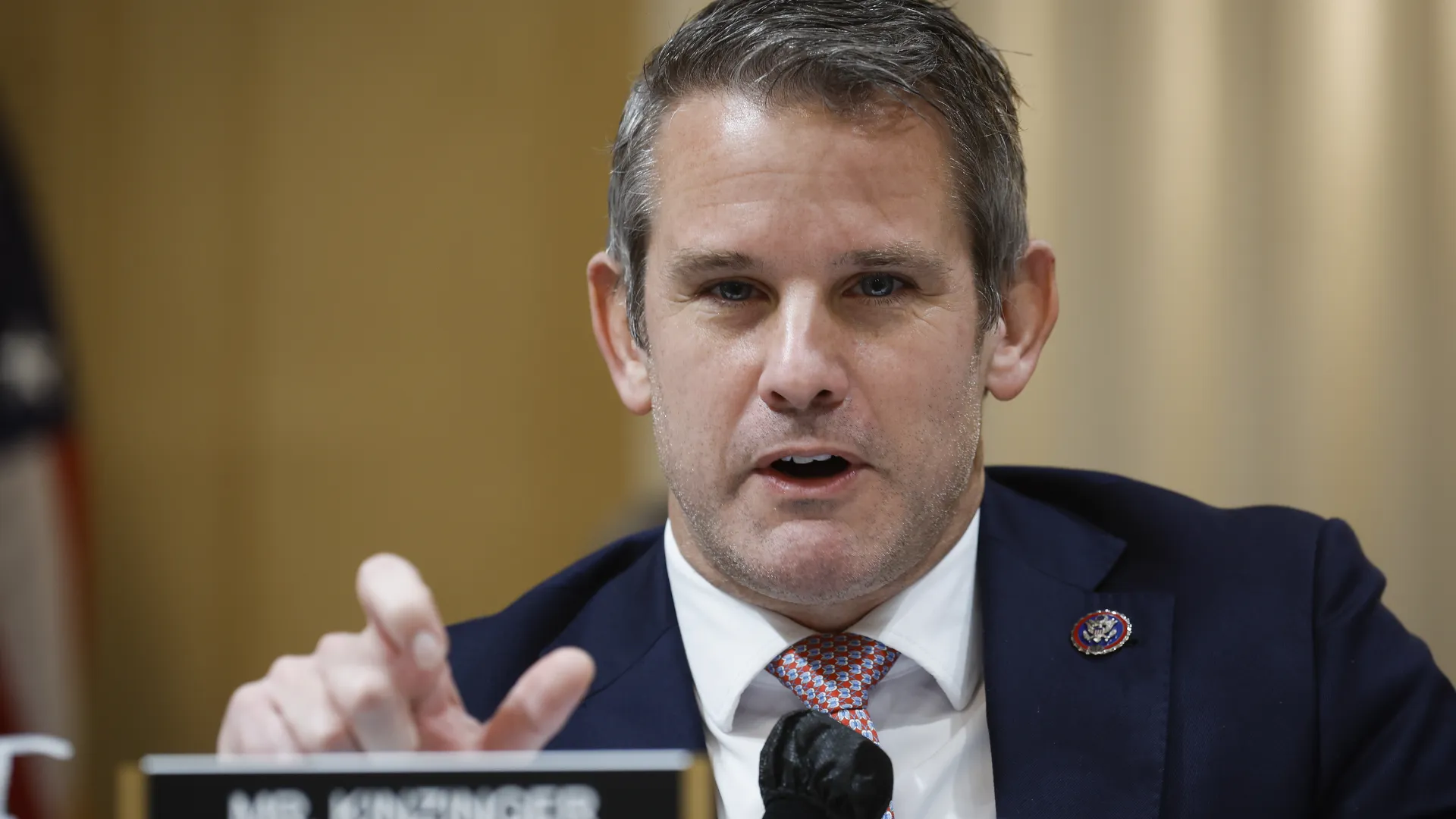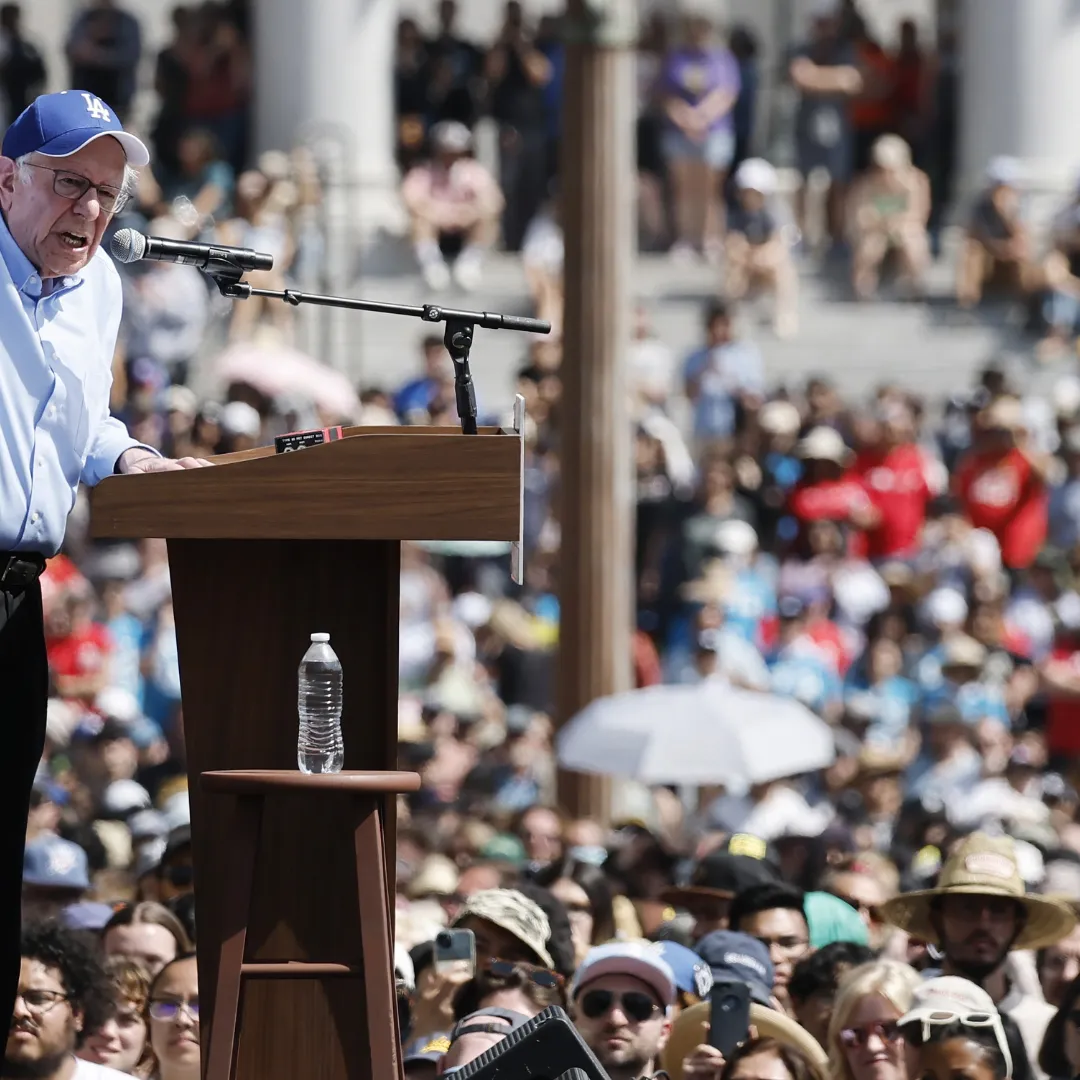As economic alarm bells continue to ring in response to President Donald Trump’s sweeping new tariffs, Senator Elizabeth Warren (D-Mass.) is raising a particularly urgent concern: price gouging.
In a sharply worded critique delivered during a CNBC appearance on Wednesday, the progressive firebrand said the administration’s trade policies are not only reckless and chaotic, but are also opening the door for corporations to artificially inflate prices — far beyond the actual cost burden imposed by the tariffs themselves.
Warren, the top Democrat on the Senate Banking Committee and a longtime advocate for market regulation and corporate accountability, accused the Trump administration of launching a trade war with little strategy and no concern for downstream consequences on American families.
Her appearance comes amid intensifying scrutiny of Trump’s economic agenda, which includes tariffs of up to 125% on Chinese goods and across-the-board levies on nearly all U.S. trading partners.
“This is actually one of my most serious concerns about the tariffs,” Warren said on CNBC’s “Squawk Box.” “There are businesses that are already saying quite publicly, yep, they’re worried, and so they’re raising prices now.”
Her remarks underscore a growing fear among economists, regulators, and consumer advocates: that rising tariffs are not just a policy misfire but a gateway to profiteering, with consumers footing the bill.
Warren, a former Harvard Law professor and consumer protection expert, has not held back in characterizing Trump’s economic approach. She has previously called the administration’s tariff policies “the dumbest trade war in the history of this country,” a sentiment she reiterated Wednesday.
“By putting across-the-board tariffs with virtually every nation, on virtually every product, with no planning and no rhyme or reason to the numbers, [Trump] is just creating economic chaos,” Warren said.
Her criticisms align with recent concerns voiced by economists and international trade experts who have warned that the sweeping nature of the tariffs — lacking nuance or strategic focus — risks destabilizing global supply chains and harming American consumers more than foreign producers.
Federal Reserve Chairman Jerome Powell added his voice to the growing chorus earlier this week, cautioning that the tariffs could contribute significantly to inflationary pressures by increasing the price of imported goods, especially in sectors like food, manufacturing, and retail.
But Warren’s commentary goes beyond traditional concerns about inflation. She is zeroing in on what she views as a predictable — and dangerous — corporate response: using the cover of tariff-induced cost increases to push prices even higher than necessary.
“Costs are going to go up across the board, for everything that consumers buy,” she said. “That creates the environment for businesses to be able to say, ‘Oh, well, we’ll just go ahead and increase our prices now. We will increase our prices more than the cost of the tariffs.’”
The result, she warned, is a “one-two punch” where consumers are hit not only by the cost of the tariffs themselves, but also by opportunistic pricing that has little to do with the real economic impact.
Her comments come amid reports that major retailers and manufacturers are already planning significant price hikes in anticipation of ongoing trade turbulence. Some consumer goods companies have even issued internal memos preparing for “tariff pricing strategies” — code for price increases justified by expected cost burdens, whether or not those costs actually materialize.
To illustrate her point, Warren pointed to a concrete historical precedent from Trump’s first term: the 50% tariffs levied on imported washing machines in 2018. The administration framed the policy as a way to protect American manufacturers and boost domestic production.
But according to studies by economists and trade analysts, while the prices of washing machines did increase, the price of dryers — which were not subject to tariffs — also went up significantly.
“The shocking part is, the price of dryers went up as well, even though there was no imposition of tariffs on those,” Warren recalled. “You tell me what that is, except for price gouging.”
Indeed, a 2019 study published by the University of Chicago’s Booth School of Business found that while the washing machine tariffs created an initial benefit for U.S. manufacturers, the ultimate cost to consumers far outstripped the job gains or domestic production increases.
The price increases on dryers — untouched by tariffs — were cited as clear evidence that companies used the policy as an excuse to hike prices across the board.
Warren’s analysis suggests that Trump’s current tariff regime is replicating, on a much larger scale, the same flawed incentives that existed in 2018. By creating broad cost uncertainty and policy volatility, the administration is effectively enabling — if not encouraging — businesses to take advantage of the situation.
And the danger isn’t limited to durable goods like appliances. The senator noted that across nearly every consumer sector — from food to clothing to electronics — businesses have the leeway to pad their profit margins while pointing the finger at government tariffs.
“It’s a gift-wrapped excuse for corporations to raise prices,” one Democratic policy aide said following Warren’s appearance. “They’ll say they’re just passing along costs, but we’ve seen this movie before — and it ends with consumers getting squeezed.”
Warren’s warning also comes at a time when the broader economic picture is deeply uncertain. Although job growth remains strong and GDP is expanding, inflation has been persistent, and the Federal Reserve remains cautious about future rate cuts. Trump’s tariff policy, layered on top of these conditions, adds fuel to the inflationary fire.
“Raising costs while inflation is still a problem is economic malpractice,” Warren said.
Republicans, meanwhile, have largely defended Trump’s trade strategy, arguing that tariffs are a tool to correct decades of unfair trade practices and protect American industry.
But even within conservative economic circles, there is growing discomfort with the scope and speed of the new tariffs — and with the administration’s inability to articulate a coherent long-term strategy.
The debate over tariffs is part of a larger economic vision that Warren has long championed — one in which corporations are held accountable for their impact on consumers, workers, and the broader economy.
In her view, Trump’s economic approach reflects a deeper failure: the surrender of government power to corporate interests, under the guise of populism.
“This isn’t just about trade,” Warren said. “This is about whose side you’re on — the people who have to pay their bills and feed their families, or the people who can use chaos to line their pockets.”
Her message, delivered with characteristic bluntness, is clear: tariffs may be framed as a nationalist economic tool, but their real-world effects often empower the very corporations that populists claim to oppose.
As the tariff debate continues, and the consequences ripple through the global economy, Warren’s voice joins a growing list of critics calling for restraint, planning, and transparency.
For now, though, the administration appears committed to its path. And if history repeats itself, it may be American consumers — not foreign governments — who end up footing the bill.








